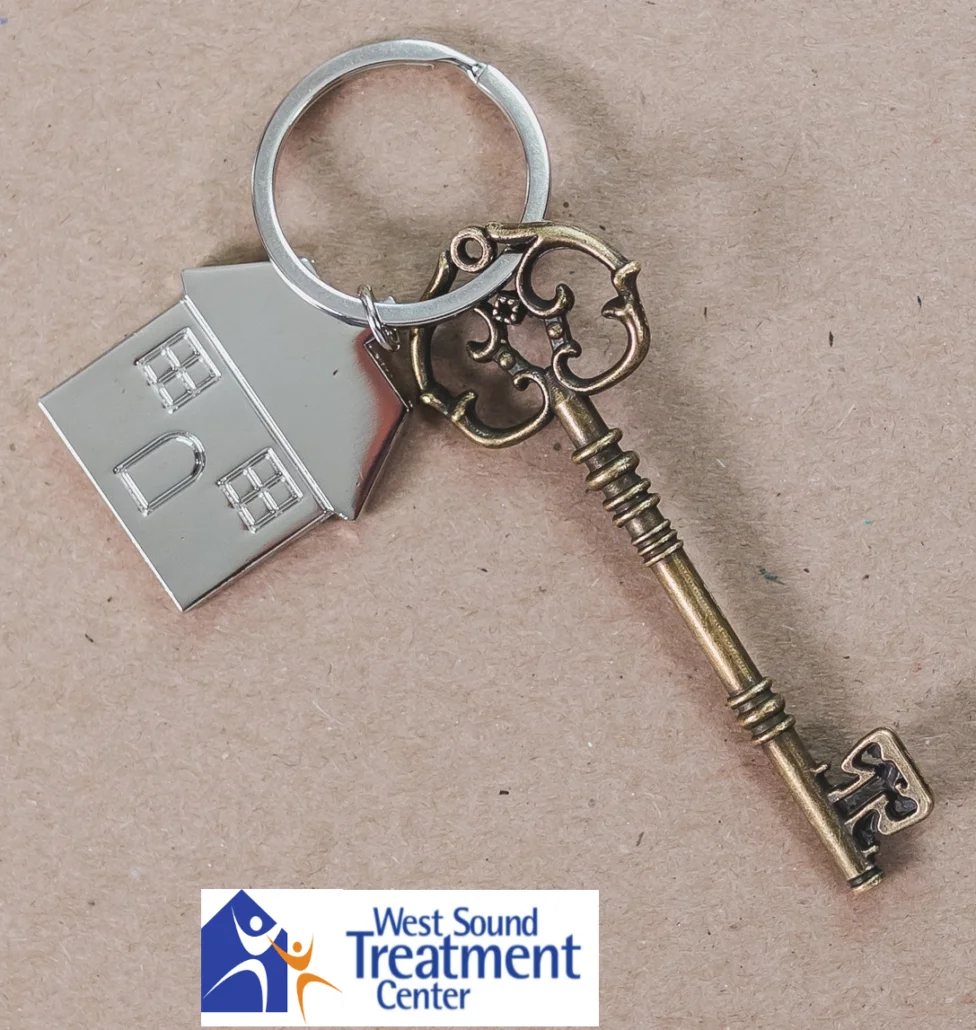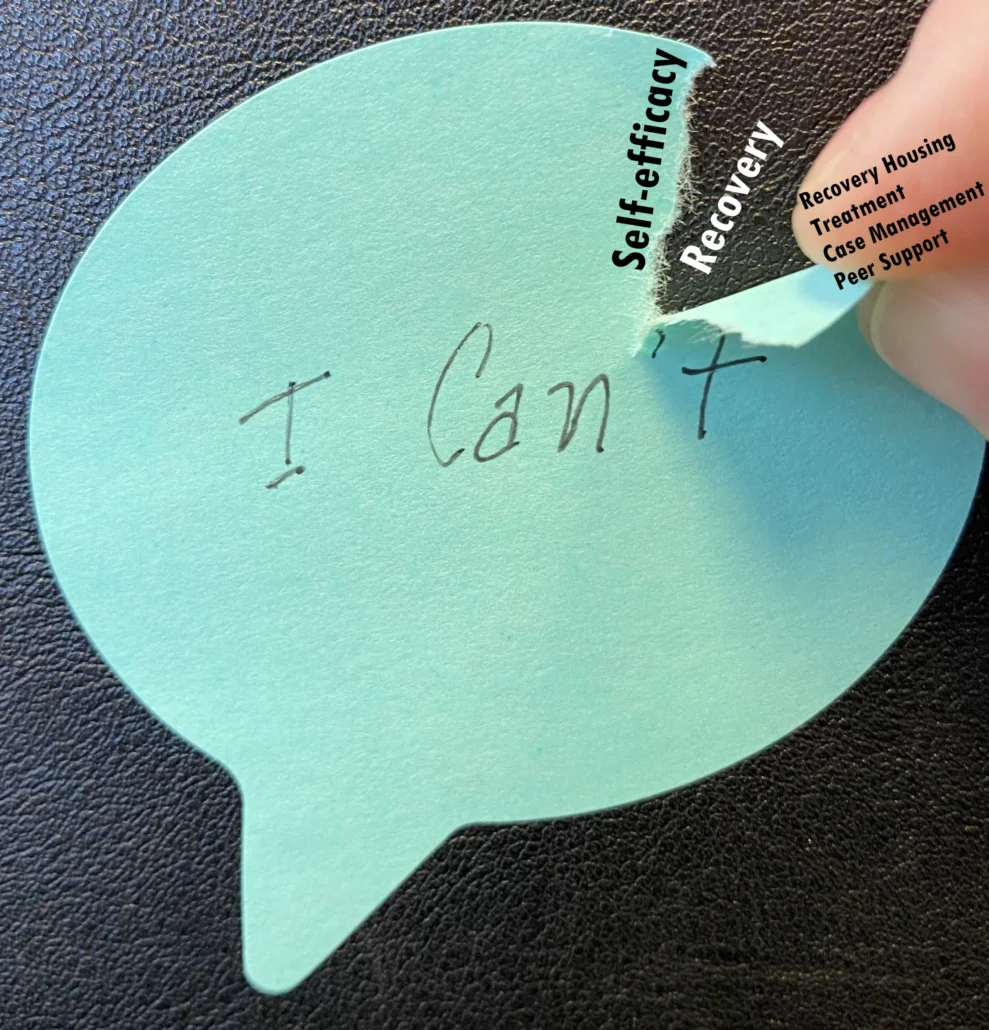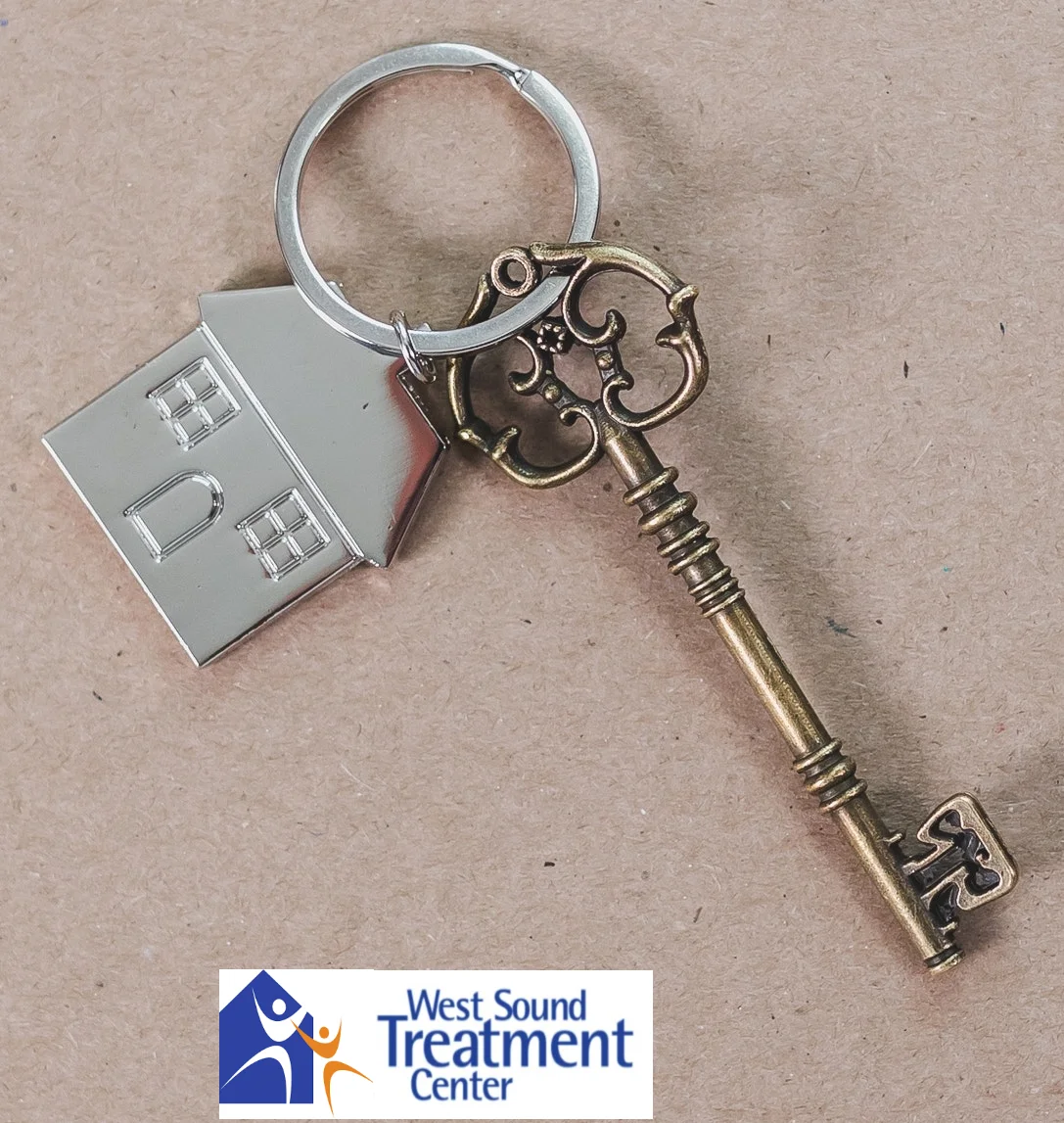
Remember in the blog about Recovery Capital, we mentioned self-efficacy (human capital that can add value for recovery)? Recovery Housing helps individuals to build self-efficacy!
But what is it?
Efficacy is the ability to produce an intended result, so self-efficacy is the belief that you have the ability to produce an intended result.
If you have self-efficacy…
You see obstacles as challenges to overcome rather than roadblocks that send you in a different direction. If you don’t succeed at a task, you’re more likely to see it as a learning opportunity than a sign that you should give up.
If you don’t have self-efficacy…
You’re less likely to set goals for yourself, more likely to procrastinate on tasks, and more likely to see obstacles as personal failures.
So how can recovery housing help residents build self-efficacy? According to this study from Stanford University, there are four ways.
1. Succeeding
The most effective way to develop self-efficacy is to succeed – and recovery houses can help with that! But of course, it isn’t that straightforward. Effortless successes and quick results set people up to be easily discouraged when challenges are hard, or failure finally hits.
When the Housing Case Managers provide guidance to residents in taking on tasks that they can handle, residents are more likely to make it through the hard times and discover that they have what it takes to succeed. Once they hold that belief, it gets easier and easier to strengthen their sense of self-efficacy, and harder to shake it with occasional failures.
2. Seeing Others Succeed
Residents learn self-efficacy from their peers, too. In recovery housing, residents are surrounded by people who are experiencing many of the same challenges. Seeing their peers succeed and identifying with them helps residents to believe that they can succeed, too.
3. Receiving Encouragement
Research shows that social persuasion works. That’s right! It really does make a difference when people receive verbal encouragement. Residents are more likely to believe in their abilities and try harder when the housing case manager, their counselor, and others who support them tell them they have what it takes. Then when they succeed at the task or overcome the challenge, their self-efficacy increases. Social persuasion on its own isn’t usually enough to significantly improve self-efficacy, but it plays an important role.
4. Understanding Mood & Stress
A person’s mood and stress can make a difficult situation seem worse, especially if they see those feelings as a negative sign indicating they should give up. This is why it’s important for self-efficacy building that residents receive help to correctly interpret the emotional stress that they experience while struggling with a challenge. People with a high level of self-efficacy don’t judge their capabilities by their current mood, and they understand that stress is a positive and natural sign of the struggle and a signal to continue.
And now we can see, not only how to build self-efficacy, but also why it is so essential to ongoing recovery. Overcoming a substance use disorder is hard. Life is full of barriers and setbacks. But if we each help others build up their belief that they can succeed, in recovery and in life, we all win.



